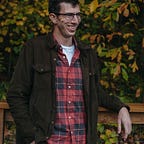What is Flow?
How can it help you achieve your full potential?
In his book The Practice of Groundedness, author Brad Stulberg introduces readers to concept of “flow” when describing one’s mindset when they are living in the present moment.
Many people in their lives reach a point where they realize time, not material possessions or career achievements, is their priority. What are able to do with and how they are spend each day.
Flow is what helps us make the most of our time. The more activities that we can do that make us fully present the more use we get out of our time. We are no longer thinking of past regrets or worried about potential problems in the future but enjoying, and engaging with, what is right in front of us.
Stulberg describes flow as the following:
In flow, your perceptions of time and space are altered. You enter what is colloquially referred to as “the zone.” Decades of psychological research show that people perform best and feel best when they enter this state. A critical precondition for flow is the elimination of distractions so that you can focus completely on whatever it is you are doing.
When we hear of athletes being in “the zone” we use it to mean that they had a great performance. During the game they eliminated distractions and focused solely on their role within the overall context of the game. Having this mindset allowed them to become the best possible player they could be.
As humans we can take the same approach in our lives. Eliminate the distractions of unnecessary pressure or wishing your situation could be different. Instead, focus on what you can control in the overall context of the game, or life, and be present with that agenda.
Stulberg goes on to note in his book that the theory of flow has roots dating back to ancient times:
In ancient Greece, a primary moral virtue was arete, or excellence via the application of complete presence in one’s craft. The Greeks believed that through arete someone expresses their full potential. They get the most out of themselves, and in doing so, they share their unique talents with their community. Though these traditions evolved in different parts of the world, their shared message is clear. We are at our best when we are fully absorbed in the present moment.
When thinking about trying to be the best version of yourself, wouldn’t it make sense to engage in things that take your full attention?
Yes there are things in life that require your full attention out of necessity, such as a presentation at work or a project with a tight deadline.
However the more time we can spend being present, the more engaged we are in our activities. We are able to put more of ourselves into them and in turn get more out of those activities to become the best possible versions of ourselves.
That is why as we get older it is imperative to become more intentional with our time. To spend it being fully engaged, whether it be a job you are passionate about, a family you are devoted to, or a hobby you enjoy.
Stulberg mentions another quote given by the writer David Foster Wallace at a commencement address at Kenyon College in 2005:
Learning how to think really means being conscious and aware enough to choose what you pay attention to and to choose how you construct meaning from experience. Because if you cannot exercise this kind of choice in adult life, you will be totally hosed.
As I’ve taken on more “adult” responsibilities such as owning a home, having a serious relationship, and more commitments at work, I’ve started to realize the truth behind Foster Wallace’s comments.
For a long time I was choosing activities that I wasn’t being fully present with. It could be a stressful work environment, toxic relationships, or unfulfilling hobbies. The attention I was given these ultimately wore me down. The opposite of “flow” was happening. I wasn’t getting out what I was putting in to some of these external pressures.
Through being more conscious about where I spend my time I’ve noticed more instances where “flow” occurs and I am able to put more into the activities that I enjoy. In turn, I’ve gotten more out of those activities and have become more fulfilled.
At first I thought I was being selfish when becoming more intentional with my time. Setting boundaries and looking out for myself has oftentimes been something I struggled with early in my adult life.
What I’ve found is that I am able to show up more for the people and things that I care about, even if at times it can be more infrequent. I’ve become a better version of who I am and have more to offer as a result. This is something no one should feel selfish about.
Throughout your day I’d encourage you to be cognoscente of instances where you feel “flow” and what activities generate that feeling for you. Chances are the more you are able to invest in those activities, the more of an authentic version of yourself you’ll become.
